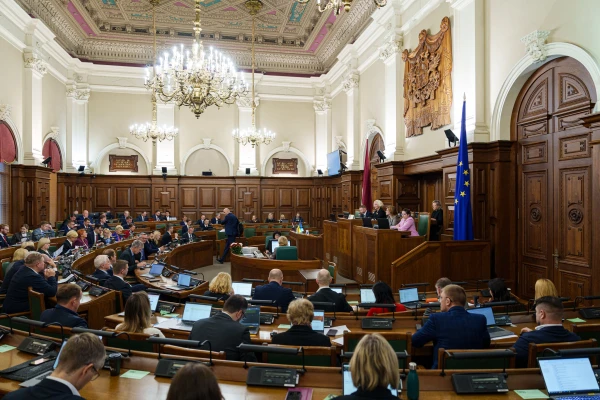
Thus, the long journey of the budget-2026 project and the package of bills included in the so-called budget package has begun through parliamentary structures. It cannot be ruled out that during the budget discussion we may witness a sensation. Namely — even ruling deputies may "risk" touching the expenditure part of the budget. "What is sensational about this?" you may ask.
The fact is that in 99% of cases, the country's budget project is agreed upon at the level of the ruling coalition before it even reaches parliament, and thus the deputies from this very coalition are instructed to... "leave everything as is," meaning that the basic figures of the budget are inviolable — deputies from the ruling coalition are "allowed" to make only technical amendments or, at best, to distribute specially allocated "excess" funds in the budget.
Will they really revise expenses?
But this time the situation is completely different: firstly, there is no "excess" money for distribution, and secondly, one of the three ruling forces — the Union of Greens and Farmers — has already warned that it intends to submit amendments to the budget in order to reduce the expenditure part of the budget. The other partners had to agree, as it is impossible to pass the budget without the "green farmers" — the coalition already has a minimal majority in the Saeima.
Since it is impossible to avoid a correction of the budget-2026 project anyway, it is logical that other ruling deputies, in agreement with their partners, may submit their proposals to the main financial law of the country. In fact, the chair of the Saeima's budget commission, Anda Čakša (New Unity), is also prepared for such a scenario, who, while presenting the budget, stated the following: "We must honestly admit that the debt is too large, and we need to delve into it. We, as the Budget and Finance (Tax) Commission, will definitely evaluate all expenses and consider the bases of the ministries."
At the same time, she, as is appropriate for a representative of the prime minister's party, praised the budget project, emphasizing that the budget-2026 is a budget of security: "Firstly, if we talk about the budget, it performs one very important function. It will enhance our defense capability and strengthen security. We will reach almost 5 percent of GDP for defense. Overall, next year the increase in defense spending is 448.3 million euros. This, of course, significantly affects the funds needed for other needs. This is undeniable. There are many needs that our society still has. However, let us admit, security is above all right now."
And the cancellation of prescription fees?
The leader of the "green farmers" in the Saeima, Harijs Rokpelnis, tried to "find" something positive in the budget for his voters, especially for people with low incomes:
"We understand perfectly well that people with lower incomes spend a large part of their money on food and medicine, unlike people with higher incomes. Therefore, the proposal to assess the value-added tax for their basic needs and reduce it is a very significant support for families and residents with lower incomes. And now I can truly say with great pleasure that finally these arguments have found fertile ground, and with these amendments to the law, it is planned to go in the direction of reducing the value-added tax on food products. However, we also debated for a long time during the budget preparation process about whether it would be possible to additionally reduce the value-added tax on prescription medications. Such changes are not included in the current law. But there is good news. Another mechanism has been found to make medicines cheaper starting next year."
The deputy meant the following changes. Firstly, from July 1 of next year until June 30, 2027, a reduced VAT rate of 12% will be introduced for bread, milk, eggs, and poultry meat. Secondly, starting next year, the service fee for prescriptions will be abolished at 75 cents if the cost of the medicine does not exceed 10 euros.
It should be noted that the budget-2026 also includes additional funds for increasing parental benefits and child care in the first one and a half years of life, as well as for improving medical assistance to families with children. The opposition, as expected, directed its main criticism at the very large budget deficit. Even the usually very loyal to the government Fiscal Discipline Council could not refrain from criticizing the authorities this time and expressed concern that the increase in allocations for defense would occur through loans rather than through budget cuts.
Hidden positions in the budget
In turn, the opposition deputy from the National Alliance, Arturs Butans, lamented from the Saeima podium about the lack of... transparency in budget expenditures: "In private business, it would be impossible to approve an annual financial document with unitemized millions. The same goes for heads of institutions. For example, a school director cannot create an annual budget with one huge unitemized amount...
But why does the Ministry of Finance think it can act differently? After all, the current budget document does not even allow us, the deputies, to answer simple conceptual questions. For example: is there funding in the security budget for the State Border Guard to ensure human resources, so that next year our neighboring countries' border guards do not have to regularly protect the border? Are there funds allocated in the security budget to finally fully pay overtime hours for firefighters and rescuers?
Will the security budget ensure that the salaries of ministry workers do not grow faster than the salaries of instructors in the National Armed Forces, as was the case last year?
And a conceptual question — about the loan. If a third of the borrowed funding goes to security, what happens to the rest of the money? Do you sitting in the hall know the answers to these questions?"
Betting on independents
A lengthy discussion of budget issues lies ahead. The final vote on the budget package is scheduled for early December.
We dare to assume that in the end the budget will be adopted, as even the "rebels" in the ruling coalition — the "green farmers" — are not yet ready to topple the Silin government.
Notably, yesterday "coalition discipline" was ensured, and the ruling party managed to secure a majority in the vote even in the absence of one coalition deputy — Uldis Augulis (SZK). Fifty-two deputies voted for sending the budget to the commission, including both independents who support the coalition — Igor Raev and Oleg Burov, as well as the two independent deputies who have moved to the opposition camp — Skaidrīte Abrama and Andris Celapīters. Thus, for now, the ruling plan is working.



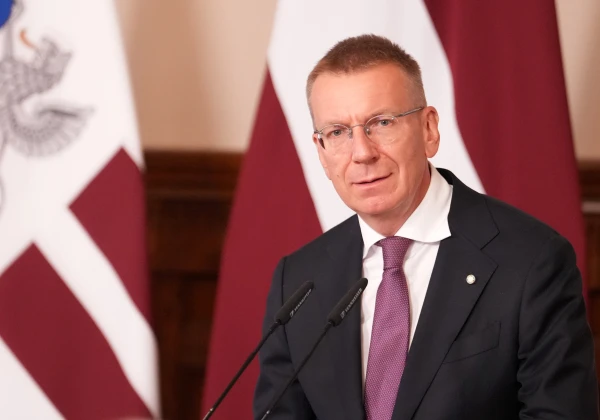



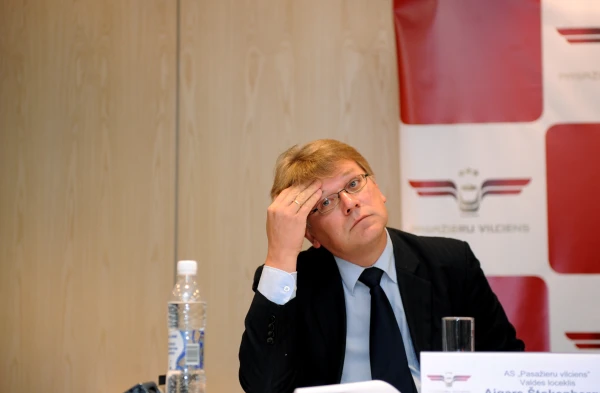
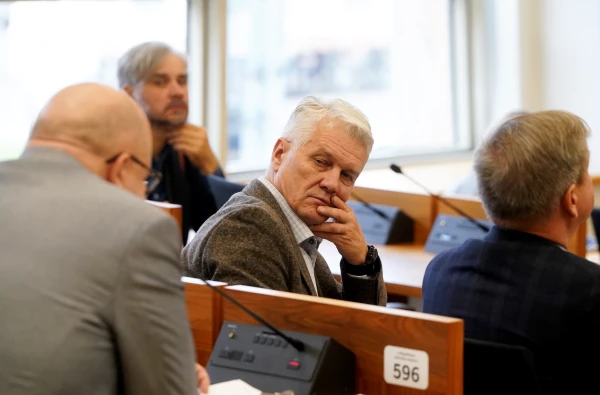
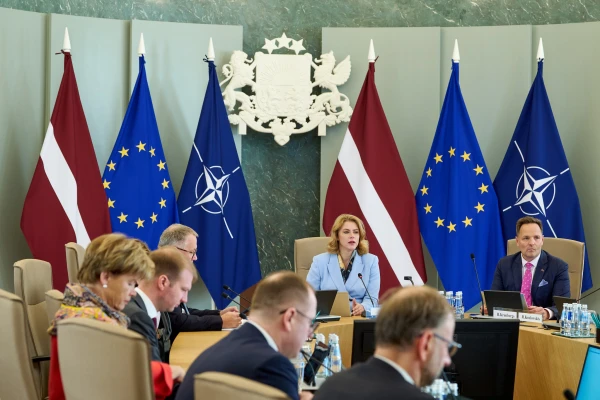






Leave a comment